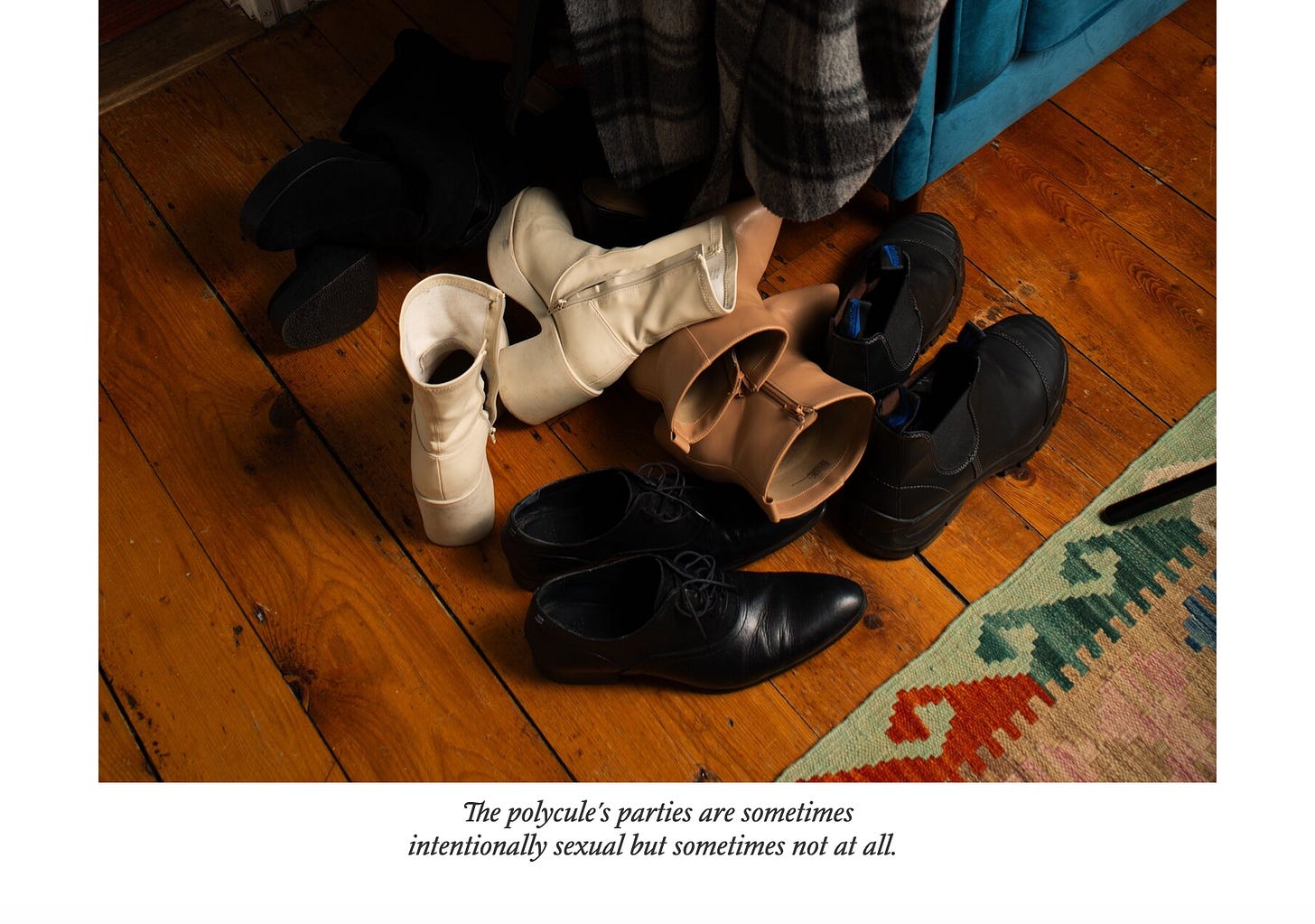Asking the big questions about polyamory, like "Who the @$#&%* has time for this?" and "Is this really what Emma Goldman had in mind?"
There’s a lot to say about The New York Times’ profile of a 20-person polycule in Cambridge, Massachusetts, an article that reads like a very tedious one-act play or a very short History of the Decline and Fall of the Roman Empire.
As is typical for the genre, all the big questions go unanswered, like, “why?” The interviewees demonstrate their mastery of the latest social-justice lingo, alongside world-historical levels of self-involvement and mind-bending logistics. Check back in seven months for the New York Times’ Gift Guide for The Dearly Beloved Non-Romantic-But-Occasionally-Sexual Life-Partner Pseudo-Wife in Your Life: “My husband, my nesting partner, is the person I own a home with. I also have life-partnership friends, I call them my wives, who are core members in the polycule. One of their husbands is one of my best friends and occasional sexual partner, and I do have sex with my wives, but we’re not romantically involved. But I love them”.
The pleasure of reading the article is, of course, purely and shamelessly voyeuristic. But the feelings it inspires are not envy or titillation but exhaustion and relief that one has never felt (or indeed ever heard of) “compersion” the feeling of “being happy seeing your partner happy with one of their other partners.”
The participants wax rhapsodic about liberation, authenticity, empowerment, and intentionality. “It is very much about social change,” Ann says. “It is about making the world a better place.” Nico praises the fact that the polycule is “female-run. It’s the female-identified people who spearhead.” Nonmonogamy is about “a bunch of queer women who say we’re not going to follow the rules.”
But there’s a strange gap between the high-flying pronouncements and the evidence that makes it unclear whether anyone is in fact being liberated, authentic, or empowered (intentionality, at least, seems to be in abundance). What’s being reinvented here? They’re 21st-century swingers — just with fewer leisure suits, more worksheets, and vague aspirations to split utility bills sometime down the road.
(Not that free love really turned out the way Emma wanted either!)





"Robert (Ann’s husband) We have this motto: ... At the start, I was going through some depression, and when we had sex I had so much stress. There were issues in the bedroom with her, and that happened many times, which caused more stress. She started seeing this dude who was an absolute stud, having sex with him and having a great-ass time, and I felt totally lame and inadequate.
That was really hard for me, for obvious reasons. I felt like, I’m a hundred percent replaceable. It took a lot of conversations. She was like, There’s nothing wrong with you, this is going to pass, therapy will help. Lots of tears were shed. But medication helped me, talk therapy helped me, changing the way we do things helped."
Reading this made me depressed. Imagine feeling sad that your wife is fucking somebody else and thinking "this is a problem with me, I need to fix myself". Even puff pieces trying to promote polyamory as an alternative lifestyle choice make it sound miserable and emotionally abusive. Literally this tweet (https://twitter.com/_evFM/status/1673521400290713600).
Hey, here’s an idea. Let’s destroy all social norms and forget everything that has ever been learned about human flourishing. Oh, and especially important, let’s be sure to ignore what happened to past experiments, like communes and cults and the like, that destroyed social norms.
I’m sure nothing will go wrong for us. We’re progressive!